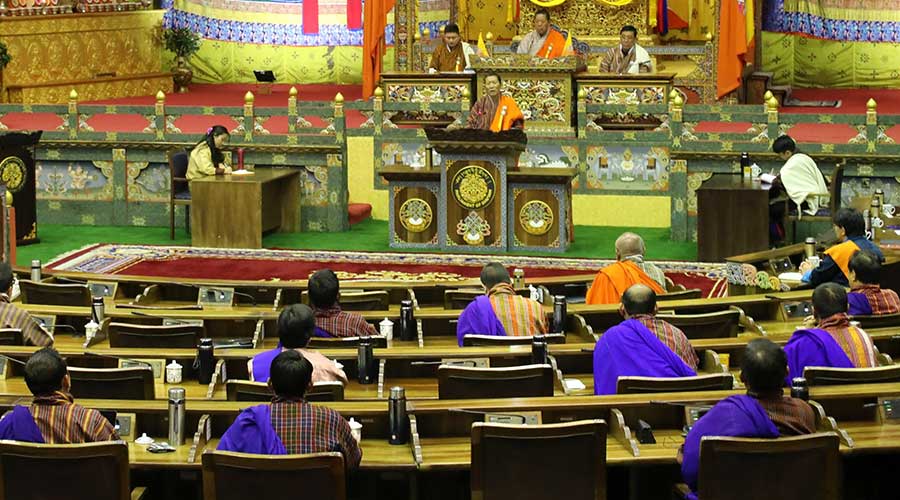
A research by an international group of education experts has found that graduates in Bhutan do not have the knowledge and the skills to get a job in the international job market. The Prime Minister shared this at the joint sitting of the parliament today while presenting the State of the Nation report. The Prime Minister said this was one of the findings while studying the education quality in one of the colleges in the country.
The State of the Nation report states that a culture of poor coordination among stakeholders such as the Royal University of Bhutan, the Labour Ministry and the Education Ministry has gravely compromised the education quality.
“We all know that we do not have quality education. We also know where we have failed. But seems like we have been wasting our time on this. His Majesty has always said that one of the main reformations should be in the education system. We know that reformation in education systems has already started,” said the Prime Minister.
The Prime Minister added that Science, Technology, Engineering and Mathematics or STEM subjects are important to improve education quality. According to the report, STEM education is regarded as the lifeline to the future knowledge-based society. With fewer students opting for STEM subjects, the report stated that the trend needs to be reversed.
The Prime Minister stated that last year, of the 4000 seats created in class XI for the science stream, only about 3000 students opted for it while the arts and commerce stream ran out of seats. The Prime Minister also emphasised that a lot of work needs to be done to improve the education quality in the country.
As part of introducing new courses and discontinuing irrelevant courses, Sherubtse College will see three new programmes by 2023. They are Bachelor of Data Science and Data Analytics, Bachelor of Digital Communications and Project Management, and Bachelor of Economics and Political Science. As per the report, TVET and skills development are being promoted as part of mainstream education to create diverse educational pathways.
Meanwhile, the Prime Minister also highlighted on the situation of the economy, health, agriculture, and employment among others.
According to the report, the overall import until September stood at more than Nu 90bn. And the export stood at less than Nu 30bn.
“What we import and what we export are completely different in terms of quality. We import a significant amount of finished goods while we only export raw materials. Imports are on food items and not on any investments. So, this type of trade deficit is concerning,” said Prime Minister Dr Lotay Tshering.
The Prime Minister also said that the country needs to give a second thought while considering hydropower as an economic sector. The gross revenue generation from all hydropower plants in 2021 was Nu 11.64bn. In lean seasons, the plants generate about 1,400MW, which is a 60 per cent decrease. He added that the amount Bhutan pays for electricity import evens out the revenue from the hydropower plants. The country exports electricity at about Nu 3 per unit and imports it at a higher rate during lean season. Last year, the country imported electricity by paying about Nu 4 per unit.
In the health sector, aside from the Royal Center for Infectious Diseases (RCID) at Gidakom, the Prime Minister said construction of fully self-contained permanent quarantine centres with 2500 beds is underway in southern districts. This is in preparation for future pandemics and infectious disease outbreaks. The report also states about the plan to establish an MBBS college in the country.
The Prime Minister also thanked the De-Suups for their continued efforts towards the well-being and development of the country.
Kinley Dem/Karma Wangdi







